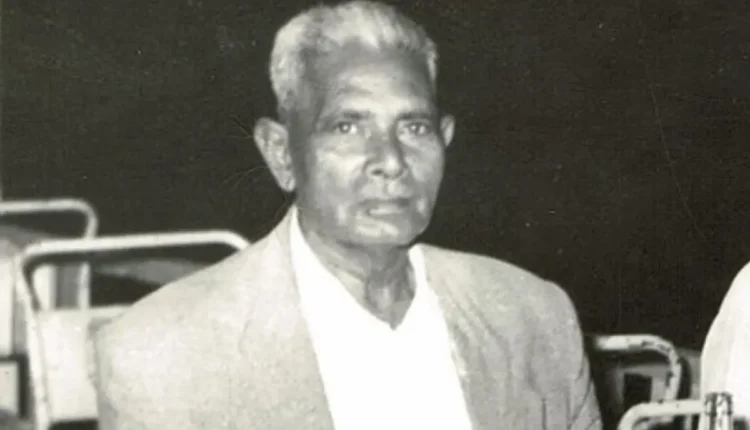Gokul Chand Mukerji’s life is a remarkable tale of resilience, courage, and boundary-breaking achievements. An Indian sepoy in the British Army, Mukerji’s journey led him from his homeland to Iraq, where he became a central figure in the city of Sulaymaniyah as its first car owner and driving instructor. His life, marked by service and struggle, reflects an enduring legacy that continues to inspire across borders and generations.
Early Life of Gokul Chand Mukerji: Humble Beginnings in the British Raj
Born in 1894 in Manikganj District of Dhaka, Bengal, in what was then British India, Gokul Chand Mukerji was the youngest child in a family of nine. His father, Sankar Jand Mukerji, was a dedicated policeman who moved the family to Gaya city, yet his life was not without tragedy. Plague swept through the region, claiming the lives of Mukerji’s parents and several siblings during his early years. At a young age, Mukerji was faced with loss and forced to navigate life independently, relying on his resourcefulness and will to survive.
After moving to Patna to live with relatives, Gokul Chand Mukerji took on various jobs to support himself. He worked as a night watchman, a clerk, and even a ticket collector, each role instilling in him a sense of duty and resilience that would guide him through his later years. Mukerji’s humble beginnings were marked by hard work and persistence, shaping his character and preparing him for the many challenges he would face in a foreign land.
Serving the British Army: From Sepoy to Sulaymaniyah
In 1918, at the age of 24, Gokul Chand Mukerji joined the British Indian Army as a sepoy, a role that would change his life forever. After training in Rawalpindi as a driver and mechanic, Mukerji was dispatched to Iraq, a region rich with history and strife. His expertise as both a mechanic and driver soon became evident, and his ability to communicate in English earned him special recognition.
Mukerji’s assignment brought him to Baghdad, but he was soon transferred to Sulaymaniyah at the request of Major Ely Bannister Soane, who was in need of a dependable driver and mechanic capable of handling challenging terrain and language barriers. Major Soane’s high standards led to the reassignment of two previous drivers, but Mukerji proved to be the ideal choice.
His skill was quickly recognized when he ingeniously repaired one of the abandoned cars by cannibalizing parts from the other, towing the vehicle into Sulaymaniyah—a testament to his ingenuity and resourcefulness.
This remarkable feat earned Gokul Chand Mukerji immense respect, and he was soon given the historic task of establishing Sulaymaniyah’s first driving school. This marked a milestone not only for the city but also for Mukerji, as he transitioned from a soldier to a trailblazer in Iraqi society.
A New Life in Sulaymaniyah: Pioneer and Cultural Bridge
Though the British forces eventually departed Iraq in 1922, Gokul Chand Mukerji decided to stay in Sulaymaniyah, feeling a kinship with the local people. He became well-regarded for his knowledge of mechanics and driving, quickly gaining the trust of influential figures, including Sheikh Mahmud Barzanji. Mukerji’s bond with Sheikh Mahmud led to him gifting his car to the Sheikh, who in return requested Mukerji as his personal driver.
In a testament to the strength of their relationship, Sheikh Mahmud affectionately nicknamed Mukerji “Ghafur Hindi” or “Ghafura Rash” (the black Ghafur), as a mark of respect and endearment. Gokul Chand Mukerji’s presence became a symbol of the merging of Indian and Kurdish cultures, and he became a beloved figure known for his humility, dedication, and generosity. His willingness to help others—often providing rides to women and children—endeared him to the Kurdish community, earning him a place in the hearts of the people.
A Lifetime of Service: Shaping Iraq’s Transportation Legacy
Gokul Chand Mukerji’s impact on Iraqi society extended beyond his role as a driver and mechanic. He invested in several cars, which he operated between Sulaymaniyah and other key cities like Kirkuk and Erbil, providing essential transportation services.
Through his work, Gokul Chand Mukerji was instrumental in modernizing travel in the region, helping bridge distances that had previously been arduous to cross. His efforts laid the groundwork for a culture of driving and mechanics in Sulaymaniyah, opening up new economic and social opportunities for the people.
Mukerji’s dedication to the city was so profound that he continued working well into old age. He finally retired in 1968, symbolizing an era of service that spanned over four decades. At the age of 74, he humbly returned his public driving license to the Chief of Police of Sulaymaniyah, marking the end of his career with the same integrity and respect that had defined his life.
Personal Life: A Legacy Rooted in Family and Culture
Mukerji’s life in Sulaymaniyah was enriched by his personal relationships and family. He married three times throughout his life, and each relationship contributed to his legacy. His final marriage to Khairiya Aiyub Ghaiyub, a woman from Kirkuk, proved to be lasting, and together they raised two children: Shukriya and Kamal. Mukerji’s legacy lives on through his descendants, who carry forward his values of kindness, resilience, and cross-cultural respect.
Mukerji was an avid admirer of Rabindranath Tagore, memorizing many of the great poet’s works, a testament to his deep appreciation for culture and literature. His multilingual abilities allowed him to communicate fluently in Hindi, Sanskrit, Arabic, Kurdish, English, Persian, and Turkish, further enriching his interactions and connections within his adopted home.
Also Read:H-1B Hiring Soars Among US Tech Leaders; Indian IT Firms Adjust Strategy

